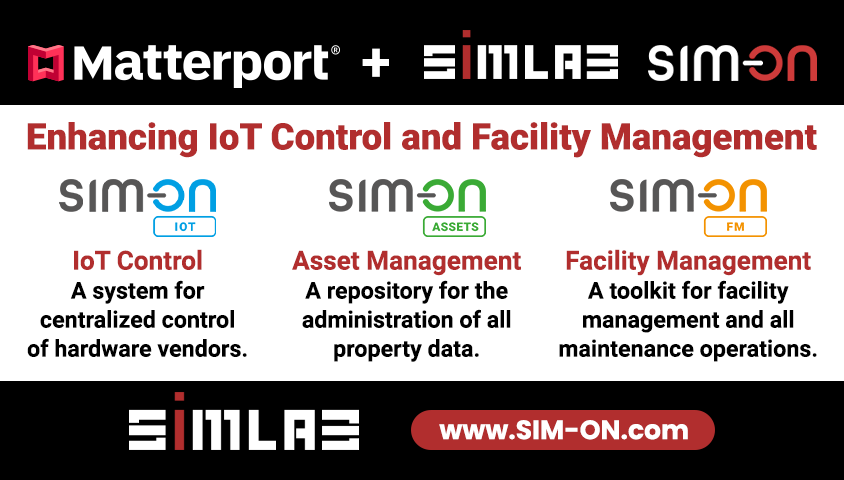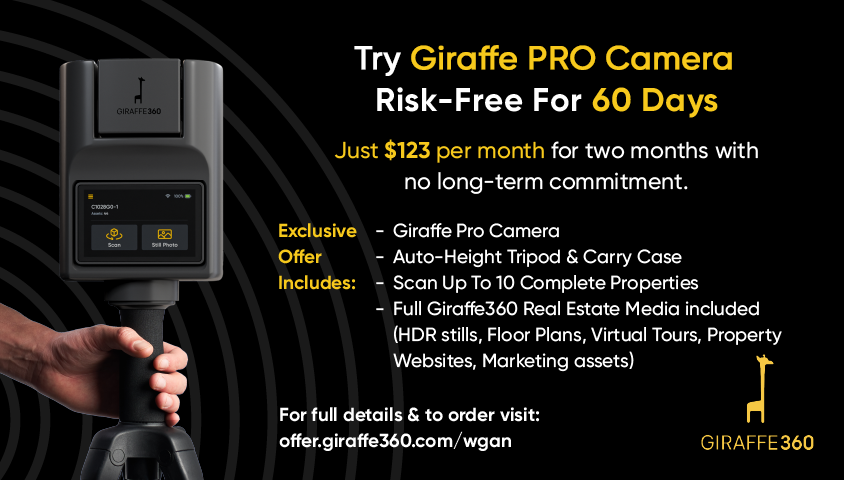Transcript: Matterport CEO RJ Pittman Keynote at Inman Connect Las Vegas9857
Pages:
1
 WGAN Forum WGAN ForumFounder & WGAN-TV Podcast Host Atlanta, Georgia |
DanSmigrod private msg quote post Address this user | |
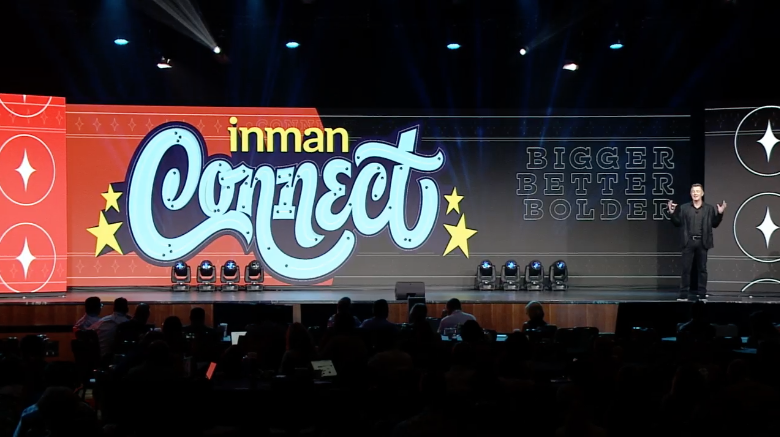  Screen Grabs courtesy of Inman  Hi All, The following is a transcript of Matterport CEO RJ Pittman Keynote at the Inman Connect Las Vegas (ICLV19) today (Thursday, 25 July 2019): When Buildings Become Data Dan --- Are you ready to step into the future? Maybe the not to distant future when buildings and the physical world around us become data. Because data is all around us today? It is powering society. It is powering the new economy and it has transformed industries left, right and center. It's transformed the way we live, the way we work, the way we think and the way we act. We use data to make everyday decisions. We plan dinners, we plan trips. We get the dry cleaning done, we run errands, we do shopping. It's data informed right? Think of it another way. How many days, how many folks in here on any given day can get by without consuming some digital bits to make things happen? It begins today at dawn, before you are out of bed. Your smart phone has become a smart alarm clock. You're consuming data in bits before you've even had a shower, before you've had breakfast. It is that pervasive. And the devices and the technology has created a frictionless pathway for us to consume this data. But interestingly enough, we have this effect that has been brought to us by the rise of two big platforms. First, the Web. I'm going to talk about that in a second. Second, the social platform. These have transformed not only industries, but society and humanity at large. Interestingly enough, the rest of the world is not there yet. Cities are starting to get smarter, consuming data to do more efficient things. Like smart traffic lights to automatically anticipate traffic congestion ahead of time, and routing people in a more efficient way. Smart lights that save energy and only light the way when people are on a path. But that's not enough. In Cities and in the world we live in, cars are starting to make up the difference. And this is pretty interesting. I can't think of a more interesting, disrupted platform by data, than transportation. Self driving cars, only the beginning. Think about navigation, how big of a breakthrough that was. If you could get that option in your car, to help you get around. Today, that technology has gone to a whole other level. It's not just getting you from point A to point B, but it's getting you there the fastest. It's offering you alternate routes, even allowing you to take the scenic route. This is the power of data. And it also reminds me of a story, see if this resonates with you at all. For years, if not maybe even decades now, I've had an age old battle in my house. I am the one who has consistently and always been blamed for taking the route that makes us late to dinner. We've heard this story before? But it was always me. No matter what I did. "You should have taken the [inaudible 00:04:42]why are you going through downtown?" You can never win. Then navigation came around and, for a while I thought it was my savior. Late for dinner, "Don't blame me, blame Na vi. I'm just following directions". Well that lasted for a little while but not long enough, because in my household, things were getting a little bit crazy. Just happened a couple of weeks ago. Trying to get to dinner with friends in San Francisco. Looks like we're going to be late. What's the best route? Where's the traffic? In fire it up my, I'll get in the Tesla, we start driving, navigation is on and suddenly there's a duel with my co-pilot for which navigation system we're supposed to use and trust. So now it's getting weird. "What are you using? Did you use Waze or did you use Google Maps?" Wait a minute, what is this? Now we're both using Waze. My wife likes to you Waze with Thomas, from England shouting out the directions. She has this very interesting relationship with Thomas - I don't want to go there. Mine sounds like Cardi B, something out of New York, and literally these will be playing in the car as we're driving. "Please turn left at the next roundabout." Mine says, "Yo don't go left, turn right". It's really true. My kids are sitting in the back, just going bananas like, what is going on? And so then what do I do? Using the technology and using data, drop the car into autopilot with navigation. So now my car can drive while I pull my phone out and pick a different navigation system. So I have the sum total of four navigation systems trying to get us to dinner and the bad news is, we were late. So while the technology has just profound, transformative effects. There are still some edge cases like me, and I don't think I'm exactly an edge case, were we have room to grow. So curse you data revolution. I suppose what doesn't kill us makes us stronger and if I think about going past my struggles with data and navigation in the car, we see some other good. We've seen some real benefits in the way that data has transformed, not just things and ways that we get around but also people. People from a relationship point of view, people from a professional point of view and yes, even our commercial relationships. I'm going to talk about this a little bit later, but what do I mean by that? The Instagram phenomenon, the Instagram platform is no longer for example, just a platform to go and socialize and share awesome photography. It is all business. But it's business in a very different way that exists generating billions of dollars of commerce without a single store, without a single cart or checkout mechanism. More on that later. All of these things. All of these data revolution examples were made possible by the first big tech platform to transform society, and that is the Web. Began in the 1990s, this was transformative. Turning industries upside down like financial services. We don't think of financial services the same anymore since the Web has connected us. It has connected knowledge and information and huge platform companies like Google have organized it and created great power for themselves in harnessing the network effects of this first great platform. We live in a world now where knowledge is at our fingertips and data is being processed in real time at orders of magnitude of scale that we can't even imagine. If I look at financial services, pick one example - I've spent many years in this category watching technology and data transform it. We went from a world were my uncle was the only one in the family that had a brokerage account with Dean Witter, and he'd pick up the phone and they'd have these long conversations about his stock portfolio. Well we're way past that now aren't we? The web brought us online brokerages, online trading. But now it's gone even further. Not just because of technology and the Web, but because of data. We now have Robo Advisors. Full autonomous agents powered by AI and a ton of data that are making investment decisions that rival some of the best investors and traders in the world. All in the palm of your hand, in a mobile application that you can get twenty four hours a day, seven days a week. There is always a Robo Advisor answering your call. This is game changing stuff. This was the first platform. Less than a decade later, perhaps more influential to society than the first, was the social platform. What began as a very novel social graph connecting college students and friends together, exploded into becoming the best way to stay connected with friends and families and colleagues. Companies like Facebook. But then something different happened. It was not just about staying in touch with everybody. It became a different kind of platform that we refer to now as social media. It has arguably shaped and re-shaped humanity. In some ways for good and in many ways that as we've seen of late, in not so good. This is where I'm talking about our personal, professional and commercial relationships have all been affected. How they've been affected? They've been datafied. They've been digitized. That's what this social platform is driven by. Is a new level of data, from which we use these platforms to change the way we think, act and make decisions. It's changed the political race. It's changed who's in office. These are very, very powerful platforms that have taken data and done transformative things with them. The responsibility we have from this point forward is greater than it's ever been. Because, undoubtedly it is shaping the future of humanity. Talk about this commercial relationship. Let me give you one example. What do I mean by that? Retail was disrupted in the 1990's on the web platform, now we have eCommerce and it's fantastic and super efficient. It's also given rise to a couple of Super Powers that we also have to pay attention to. Because it is that good and provides that much value. Watch what's happened with Instagram. One of my favorite platforms. Now you have people like Kylie Jenner. An unbelievable personal brand that is mapping some very interesting things. She has built a billion Dollar empire and conducts tens of millions of dollars of transactions on that social platform, without accepting a single credit card on Instagram. How do we do that? That is commerce through a relationship. That is commerce through a relationship that was created with data. She now has something on the order of one hundred and forty million followers. She's more powerful than most retail chains in existence. She's more powerful than Target. She's more powerful, maybe not to the Walmart, but certainly more powerful than most eCommerce companies out there and she's a single human being. That is created by the power of data in a transformation of how we think about our relationships. So let me jump into the future. Maybe the not so distant future. The third platform. This has been coined as the next transformation in front of us. And it was coined thirty years ago by a Yale computer scientist. What did he say? He said, "The world will see transformative effects by..." something that he refers to as, "the mirror world". Which is a digital version of the physical manifestation of everything we see around us. Buildings, street lamps, roads, cities and all of the objects that these buildings and structures contained. We start to see glimmers of this with virtual reality. We see this with augmented reality, where digital enhancements of the world right in front of us are being presented in useful and interesting ways. But Kevin Kelly, the founder of WIRED magazine, who now only writes one article a year for his magazine that he created, wrote a phenomenal piece that you have to see, on the mirror world, thirty years later. It came out just last month, check it out. What he says is, "This new platform, built on the mirror world. A digitization of the physical world, will create the wealthiest companies and the greatest economies that we've seen in the world to date". He even goes further to say that, "It will become humanity's greatest achievement". Why all this hyperbole? In this mirror world, everything will have a Digital Twin. Buildings, cars, the roads that they drive on. Offices, homes, apartments. Hotels. Companies are already trying to meet this impending phenomenon halfway. You see IKEA now, every product in it's line up, and it has tens of thousands. Are all digitized, are all in full 3D with an extraordinary amount of data associated with it. It's no longer just about photography. Because you want to know how that couch fits in your room, if you're going to buy it don't you? They're meeting this revolution right where it's heading. They're skating to where the puck is going. And there are many other companies doing this, Wayfair, Amazon, watch them all. They are creating the digitization of all of these components. They're building the Digital Twin of the physical world. Drones and self driving cars and robots are already using this world. It's not just about using computer vision to see what's right in front of you and avoid hitting an object in the road. These systems are now using virtual worlds that are created from data. So they know where things are in a city, in a town without even having to see them. Because they have a complete reproduction of that city on file, in their operating system. It's all because of one big disruptive change that's happening in the industry, and its not computing technology and it's not even the data. It's the thing that you all have in your hand today, and that is the camera. Camera has been completed transformed and disrupted thanks to iPhone, thanks to the smart phone. If you'd noticed lately, with all the new phones that have come out, Samsung, iPhone, Pixel. It's not about speeds and feeds anymore is it? It's a camera arms race. Whose cameras are better? Whose can capture more information? Whose can do, who can do more interesting tricks with photography. This is called computational photography. This is what's made things like Snap, a ten, twenty billion dollar company. Because it's not the photo that you take. It's the effects and the digital layer that you put in front of it, that makes it so interesting. These cameras are getting more and more powerful and they can see and process and do things that were never possible before. One of the things that made Instagram so popular is, it would use computational photography to take a pretty lame picture and make it beautiful and amazing. We've gone so much further with that and we have cameras now that can see with almost X-ray vision. Blending the structural integrity of a space, like what we see behind us, with 4K HD photographic realism, together. This is what the Digital Twin is all about. It's not about having a photograph of everything that exists. It's having the anatomical structure. The data that we can operate on this. Cameras will be able to capture reality unlike anything we have seen in the not too distant future. In closing, when buildings become data they will get organized. When the data gets as rich as it has for the first two platforms, you're going to see some really interesting things start to take shape. Rooms are data. Rooms will operate like an operating system. It's not just about what's in it and what's the square footage and does it have nice windows. Oh no, we know exactly what type of windows they are. We know the dimensions of those windows. We know what's on the floor. We know the electronics that are in the room, managing temperature. Your security system, the furniture. Right down to the brands. Then imagine if that's a canvas, that software can operate on and you can have a designer come in and redesign that room. Without ever visiting it. You can have a contractor, cabinet maker build you a kitchen without ever visiting your kitchen. To exacting dimensions of the space. The types of services that we will be able to bring to the built world are extraordinary. Insurance companies will underwrite insurance policies for homes, buildings, businesses, partners, hotels. Site unseen. Because this data's going to be more accurate than any 2D photo and some notes that an appraiser might jot down, in assessing a property. It's going to be exactly true. Including the contents and the conditions of the contents. Computer vision is already there and can identify most of these objects in the screen. It's moving that fast that we've trusted it to put it into cars and drive us around. Those cars have the same computer vision. Detecting objects and navigating and trying to keep you safe. So why not move this technology to the largest asset class in the world. Where we can do much more interesting things and arguably not put our lives at risk. One thing we know for sure. Will this third platform ostensibly become our crowning achievement in humanity? Well I think that's for the future to determine. What we do know, is that it's headed our way and we can't ignore it. So let's own it. Thanks very much. # # # # # |
||
| Post 1 • IP flag post | ||
 WGAN Standard WGAN StandardMember Las Vegas |
VTLV private msg quote post Address this user | |
| Lost my interest with the story about Waze Vs Google Maps. I got about 30% of the way into the story that he twice said he would get back to later and then opens up into a relate-able with Instagram and kylie jenner. Not one mention of Matterport in the whole speech when I run a word search. I'm not on board with this guy. |
||
| Post 2 • IP flag post | ||
 WGAN WGANStandard Member Bon Secour, Alabama |
Chemistrydoc private msg quote post Address this user | |
| @VTLV At least he's dropped the black turtleneck....cue Silicon Valley (HBO)...lol | ||
| Post 3 • IP flag post | ||
 WGAN Standard WGAN StandardMember Las Vegas |
VTLV private msg quote post Address this user | |
@Chemistrydoc - That outfit was so Theranos. Don't make me watch the Inventor just to better understand the future  |
||
| Post 4 • IP flag post | ||

|
MeshImages private msg quote post Address this user | |
| No word on how he wants to capture this data. And no word on how this data will be managed. One example: Who teaches the sales people at IKEA to take measurements in Matterport workshop 3 or showcase 3? And who teaches the consumer to create the accurate 3D model? Who teaches using trim tool, marking mirrors, etc. I know most of these use cases, that RJ mentioned here. Yes, we can do a lot with a digital twin - insurance, home design, ikea... But my experience shows me, that all of my clients/users (business and consumer) need my personal help with every task in connection with a Matterport digital twin. I don´t know too much, but what I know is: Using data needs know how. And creating data needs know how. Building and managing the third platform needs the know how from the professionals in the field. |
||
| Post 5 • IP flag post | ||
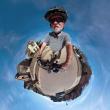
|
izoneguy private msg quote post Address this user | |
| Seems like we are getting away from 360 virtual tours. Most real estate agents are unaware of Matterport. And if they are - it's about how cheap can I git her done...... | ||
| Post 6 • IP flag post | ||
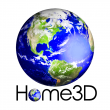 WGAN WGANStandard Member Los Angeles |
Home3D private msg quote post Address this user | |
| One takeaway from his talk is “data”, “data”. People talk about what’s important to them, and it’s clear that we are not. We are the (soon to be disposable) drivers of Uber cars. His quote “will create the wealthiest companies” is likely true. Does anyone doubt that Uber’s profits will rise when drivers are eliminated? And shipping costs will fall when 5 million truck drivers are laid off, forever, in the coming decades? Yes, the “companies” will get wealthier and the middle class will shrink further. Pittman fits perfectly into this future world. |
||
| Post 7 • IP flag post | ||
Pages:
1This topic is archived. Start new topic?



